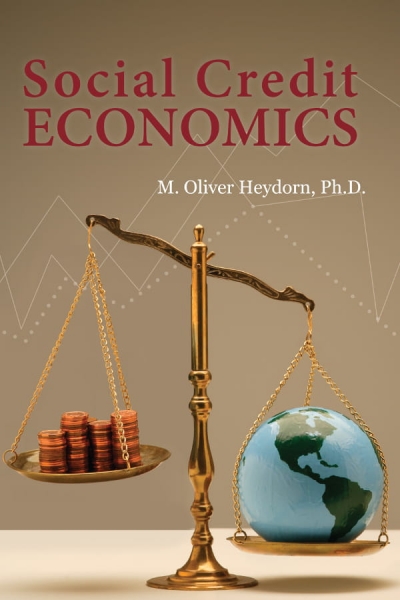"Most comprehensive review of Douglas Social Credit perhaps ever authored!"
The author has meticulously gathered the essential ideas of Social Credit as advanced originally by Clifford Hugh Douglas and put them between two covers where they can be readily accessed by students and interested parties. This book should readily qualify as an authoritative text for academics, students and public policy makers. It presents the most realistic analysis of modern financial civilization, its core inherent defect--a growing deficiency of effective consumer purchasing-power necessitating the exponential growth of financial debt--and offers the appropriate remedial measures, being primarily a progressive issue of consumer credits, originating without being accounted as debt and taking the form of universal consumer dividends and compensated retail prices to effect a falling general price-level. A brilliant compilation of essential information that should be read and studied by every responsible citizen.
Wallace Klinck
By presenting the key economic ideas of Major Clifford Hugh Douglas (1879-1952) in a clear, systematic, and comprehensive fashion, this work constitutes an academic standard of reference for those who wish to obtain a more advanced understanding of Social Credit economics. It is divided into three parts covering Douglas' diagnosis regarding the nature and cause of economic dysfunction in the modern, industrialized world, his prognosis, including an evaluation of the conventional methods of macroeconomic management, and, finally, his remedial principles and proposals. Just as Douglas' analysis goes to the very heart of what is structurally wrong with the financial and economic systems of contemporary civilization, Social Credit Economics effectively captures and distills the essence of his economic thought, rendering it more easily accessible to the broadly educated and reflective reader.
The book is available on-line through the amazon network in the following countries:
It is also available in most other countries through Createspace's extended distribution network, for example, via Bookdepository.com: Book Depository.




